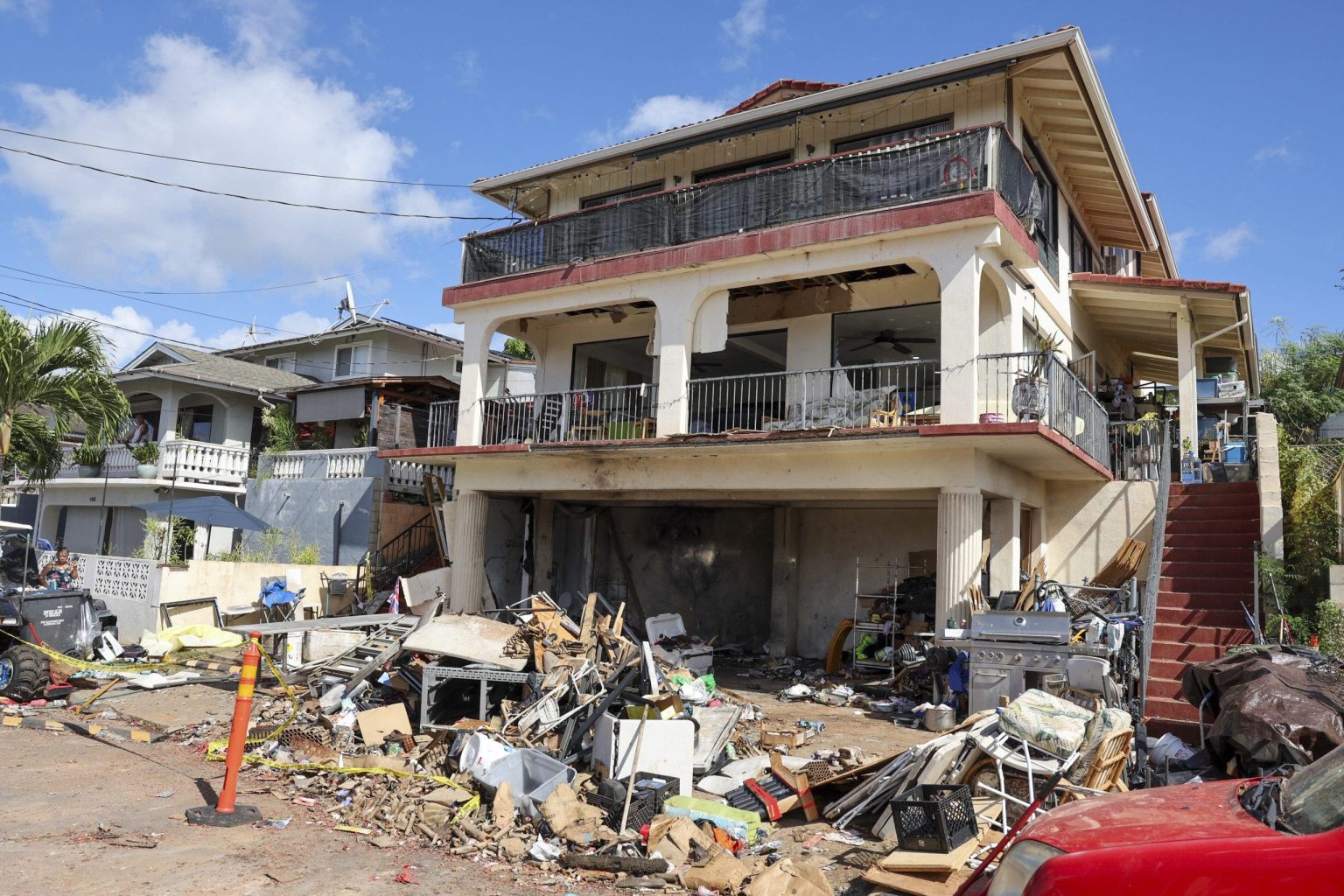The New Year’s Eve celebrations in Honolulu, Hawaii, were marred by a devastating fireworks accident that claimed the lives of three individuals and left more than 20 others injured. The incident unfolded in a residential neighborhood near Honolulu’s international airport when a large firework, known as a “cake,” tipped over after being ignited. This triggered a catastrophic chain reaction, igniting nearby crates filled with additional fireworks and causing a fiery explosion that sent shrapnel hurtling through the air. The force of the blast shattered windows in nearby homes, leaving a scene of chaos and destruction in its wake. Two women perished at the scene, while a third succumbed to her injuries at a local hospital. Emergency responders arrived to a horrific scene, encountering numerous victims suffering from severe burns and shrapnel wounds, including children. The sheer number of casualties and the severity of their injuries overwhelmed the initial response, forcing paramedics to triage patients several houses away from the blast site due to obstructed access caused by parked cars and large crowds.
The tragic incident highlighted the pervasive issue of illegal fireworks in Honolulu, where only sparklers, fountains, and firecrackers with permits are allowed. Despite these regulations, social media posts documented widespread fireworks displays across the city on New Year’s Eve. The home where the explosion occurred contained tens of thousands of dollars worth of illegal fireworks, including the 50-round “cake” that initiated the disaster. Authorities are investigating whether the individual who lit the firework will face charges. The incident has sparked outrage and grief among city officials, who expressed anger and frustration at the unnecessary loss of life and suffering caused by the reckless and illegal use of fireworks.
Governor Josh Green, deeply affected by the tragedy, publicly described the victims’ injuries as akin to those sustained in a war zone, emphasizing the extreme danger posed by fireworks. He announced that his administration is exploring the possibility of imposing stricter penalties for fireworks offenses, including potentially classifying the possession of large fireworks as a felony. The current penalties for illegal fireworks possession in Hawaii are relatively lenient, with fines ranging from $25 to $2,000, which many feel are insufficient to deter the widespread use of illegal fireworks. The governor believes that more stringent penalties are necessary to curb the dangerous practice and prevent future tragedies.
The Honolulu fireworks disaster was not an isolated incident. A fourth fatality occurred due to a separate fireworks explosion elsewhere on Oahu that same night, and at least four other individuals sustained serious injuries in unrelated fireworks accidents across the island. These additional incidents further underscore the inherent risks associated with fireworks and the urgent need for greater public awareness and stricter enforcement of existing regulations. The string of fireworks-related tragedies cast a somber shadow over the New Year’s Eve festivities, prompting calls for a comprehensive review of fireworks regulations and enforcement practices in Hawaii.
The aftermath of the Honolulu explosion revealed a scene of devastation, with piles of debris, including blackened firework mortars, strewn across the front of the affected home. The sheer power of the blast was evident in the extensive damage to surrounding properties. The tragic incident has left the community reeling, grappling with the loss of life and the extensive injuries suffered by so many. Emergency responders who attended the scene described it as one of the worst they had ever encountered, highlighting the scale of the tragedy and the profound impact it has had on first responders.
The Honolulu fireworks disaster serves as a grim reminder of the dangers associated with fireworks, particularly when handled improperly or illegally. The incident has sparked a renewed focus on the need for stricter regulations, increased public awareness campaigns, and enhanced enforcement efforts to prevent future tragedies. The governor’s commitment to exploring stricter penalties, including the possibility of felony charges for possessing large fireworks, reflects a growing recognition that existing measures are inadequate to address the pervasive problem of illegal fireworks in Hawaii. The hope is that by implementing more stringent penalties and raising public awareness, future tragedies can be averted, and New Year’s Eve celebrations can be enjoyed safely and responsibly.

